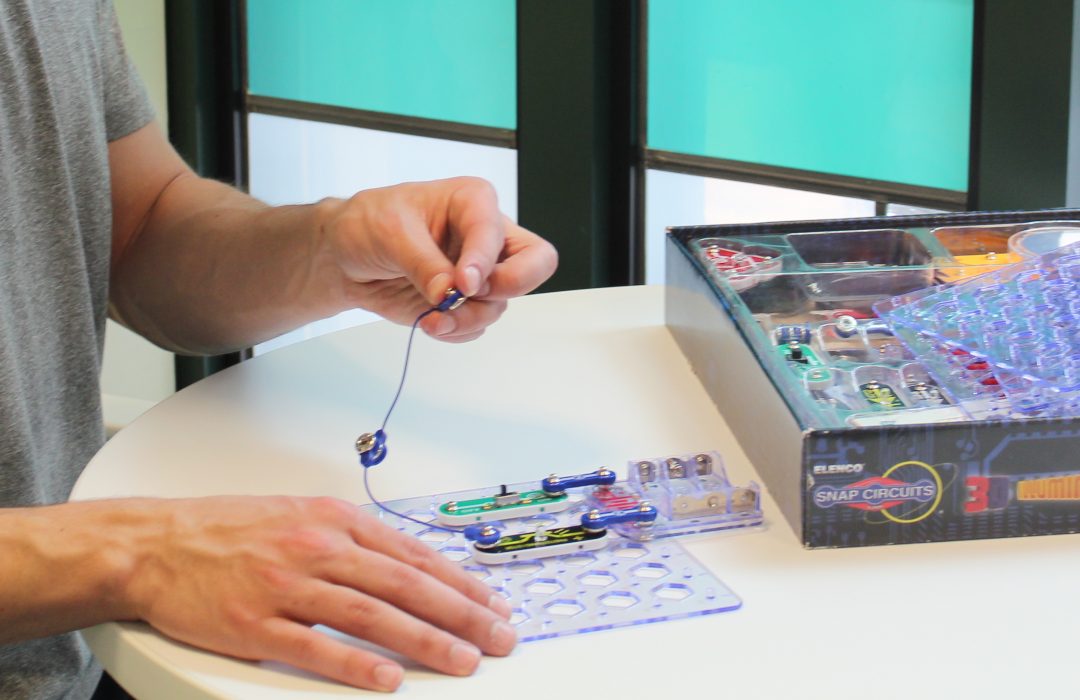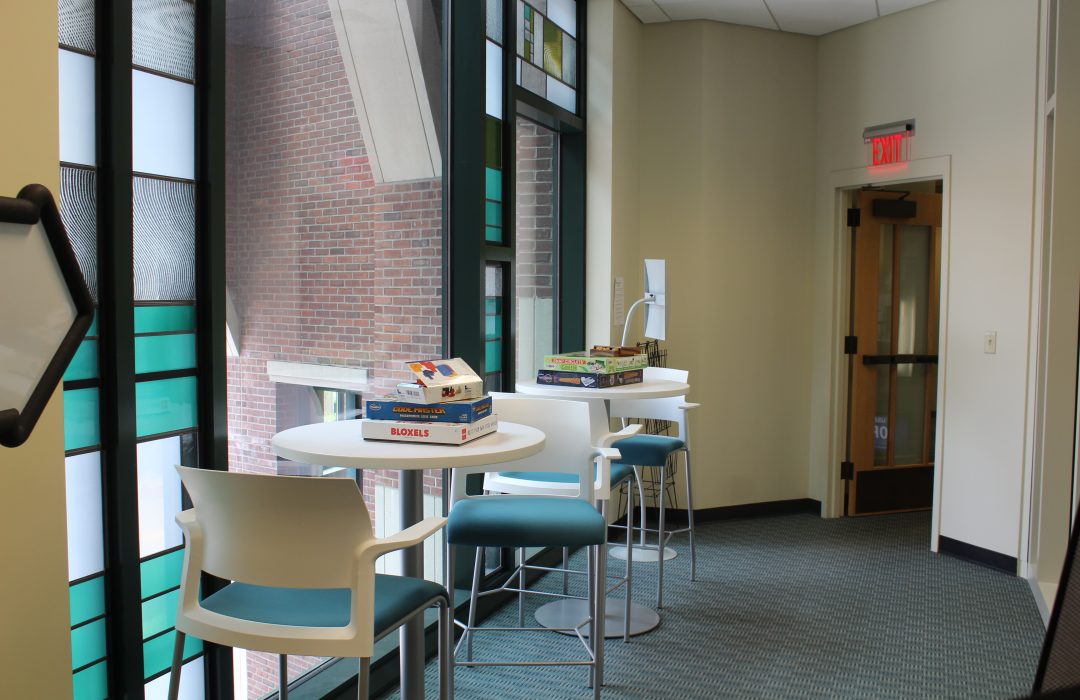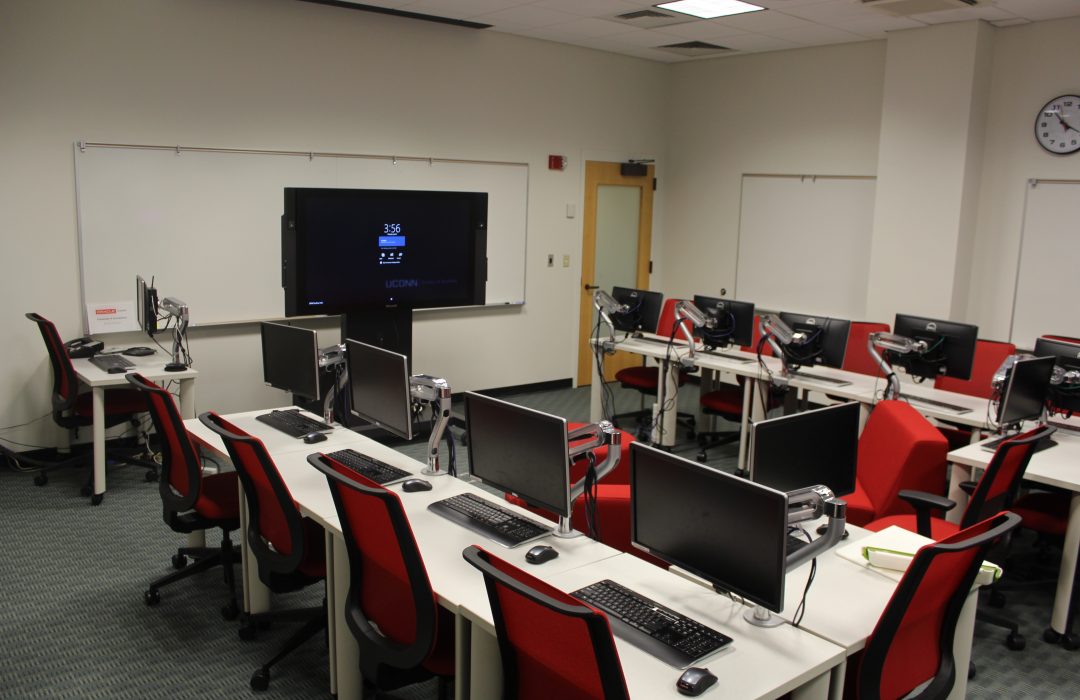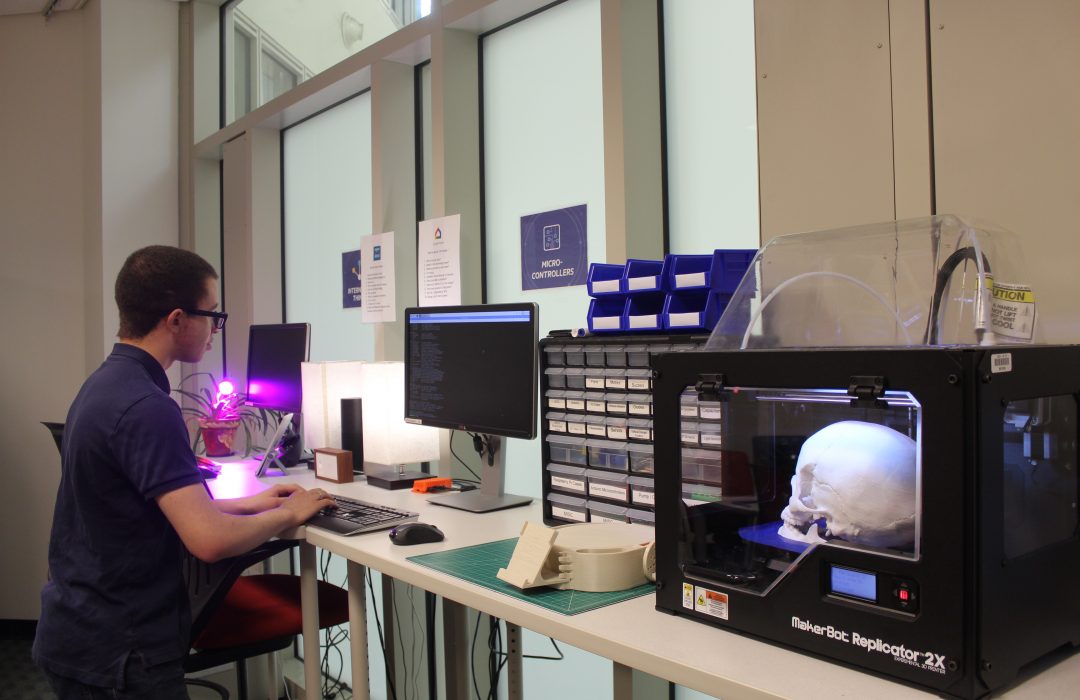OPIM Innovate provides resources and support to host unique challenges for entrepreneurial UConn students. We support internal as well as external challenges annually.
Internal
We support internal challenges in partnership with other research labs across campus. These challenges range from hackathons to case competitions exploring real-world applications of analytics while gaining transferable skills.
External
We support external challenges in partnership with various companies to encourage intellectual curiosity among students. These challenges often highlight skills in data analytics with the support of well-renowned organizations.
Innovation Path – Design Thinking
One of the most common approaches to Design Thinking is a 5 phase approach. Define. Empathize. Ideate. Prototype. Test. The first four phases can be accomplished in our Innovation Space and when the project is ready for the Test phase then more time and equipment can be reserved by our Lab Specialist in the Research Lab. Each phase in our Innovation Space is also accompanied by a Blueprint (worksheet) that assists the user or team in working through their ideas in that phase. Helpful tips and guiding questions are used to encourage quick development of ideas and prototypes. The end goal is to have a portfolio and set of notes around the project going into the Test phase.
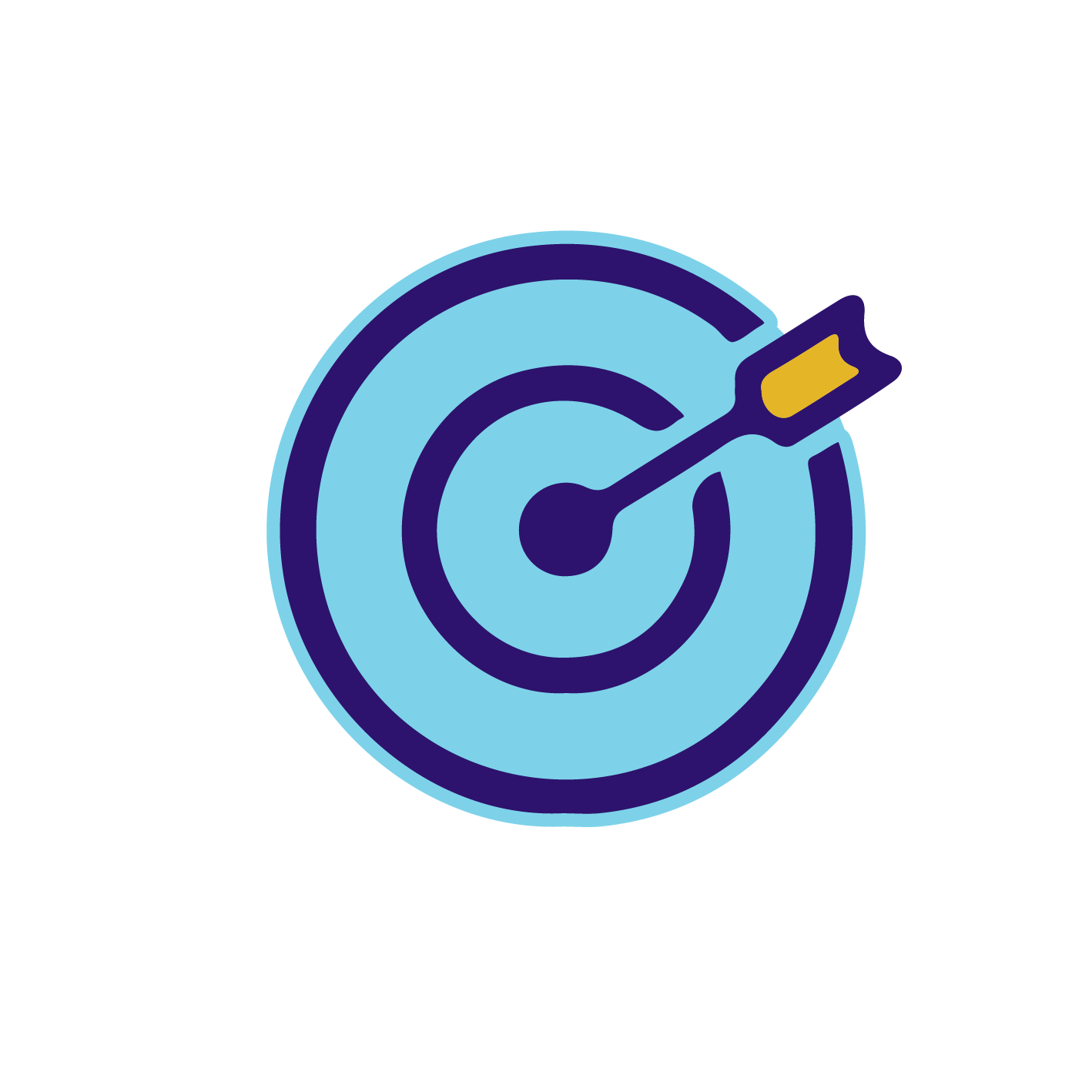
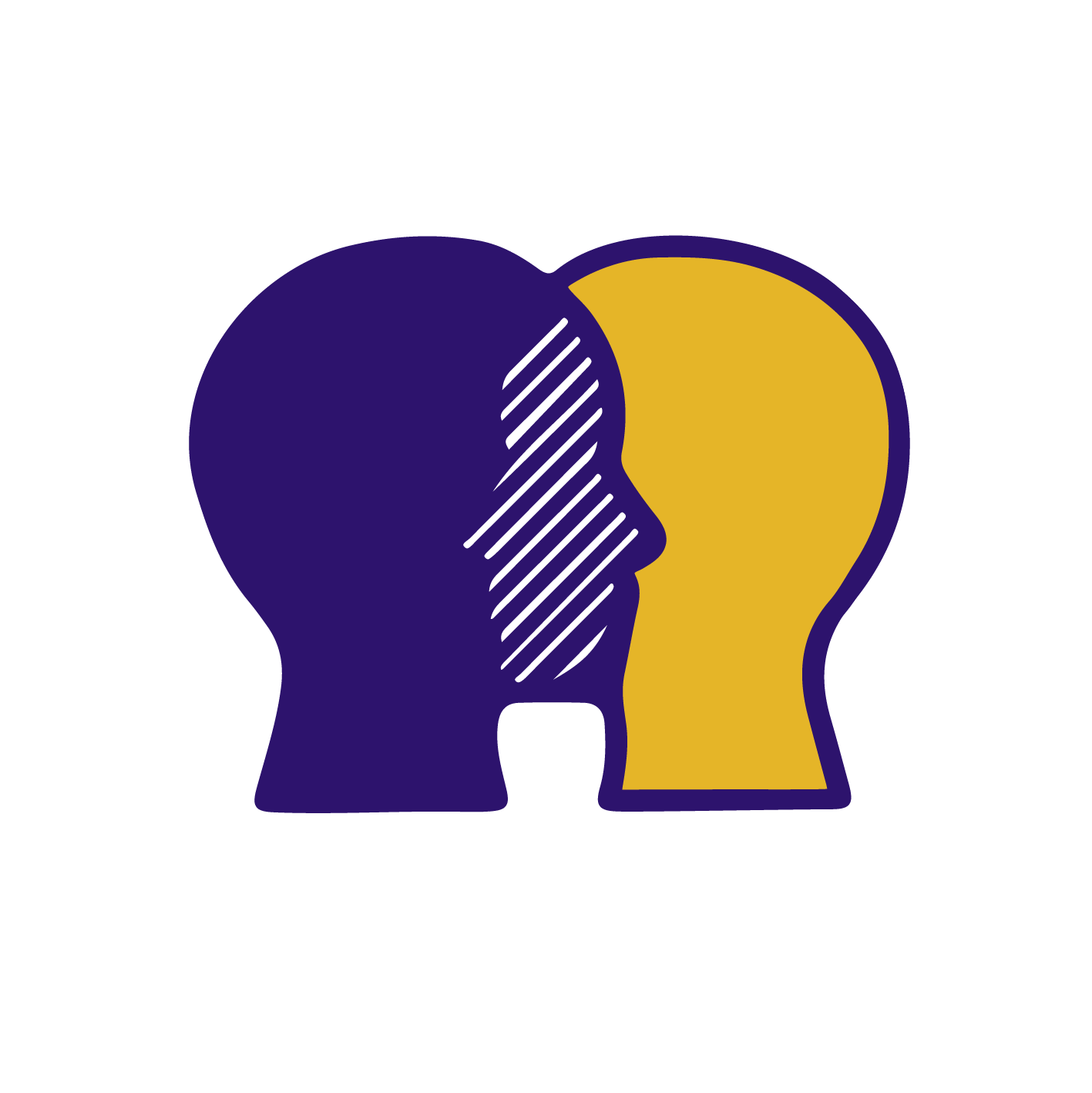
Define
In the define phase, you need to be begin by defining the objectives. In our Define space, we have set up high top tables to create a space where you can meet with stakeholders of project or use our games and activities to get the creativity flowing.
Empathize
The empathize phase is based on user demographics and understanding the wants and needs of your audience. The empathize phase shares the space and resources with the Define phase.
Ideate
In the ideate phase, generate as many ideas as possible and narrow down the options from there. It is highly encouraged to thinking freely and creatively. In our Ideate space, we have set up a double-sided mobile whiteboard to allow for free thinking and quick idea generation.
Prototype
In the prototype phase, it is important to develop a sample product that you can engage with. In our Prototype space, we have set up a short throw projector, workstation, and space to collaborate with a team if needed.
Test
In the test phase, you set standards and measures to test your prototype against. This is an iterative process so often you go back and change your prototype and keep testing it until the project is where you want. This phase is often performed in the Research Lab where more space and equipment is available.

